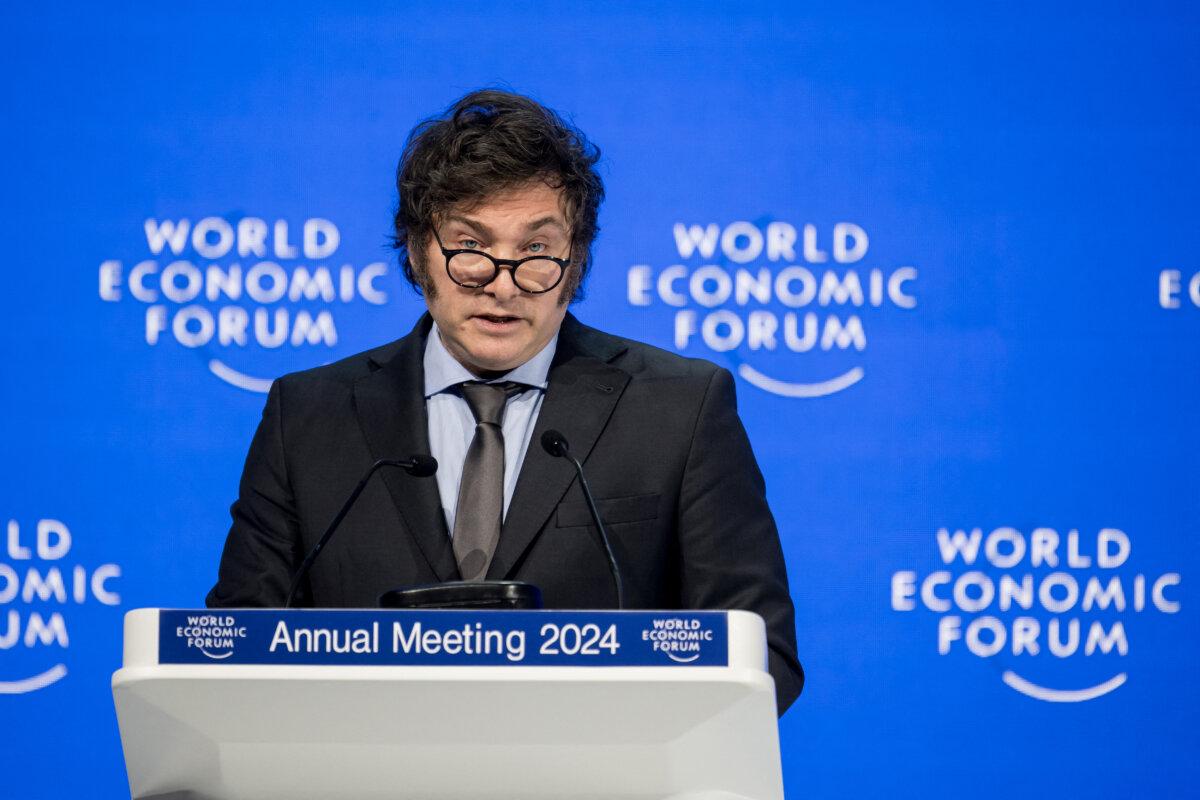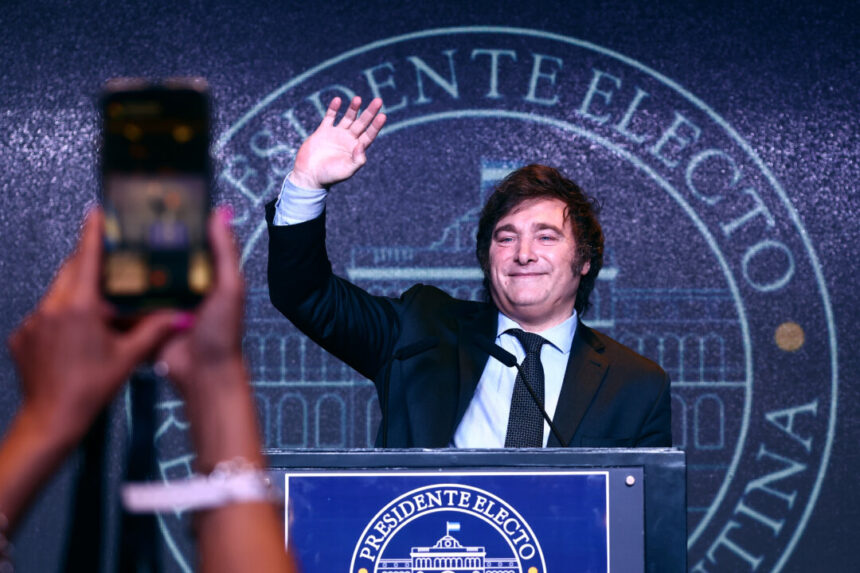Argentina’s President Javier Milei has successfully achieved the country’s first fiscal surplus since 2008, just four months into his term, amidst significant reforms. The stabilization of the national currency and the attainment of a fiscal surplus for the first quarter in 16 years are notable accomplishments. The Argentine peso has experienced a remarkable recovery, with the black market exchange rate against the U.S. dollar increasing by approximately 25 percent in the last three months. This growth surpasses that of all other currencies tracked against the dollar by Western financial institutions.
Due to restrictions on acquiring U.S. dollars through official channels in Argentina, the black market exchange rate, also known as the parallel rate or Dollar Blue, has become a crucial alternative for investors. President Milei’s administration has seen the peso’s value improve, enabling the Central Bank of Argentina to actively purchase U.S. dollars and boost its hard currency reserves. The bank has acquired $12.1 billion since Milei took office, raising its international reserves to $28.3 billion.
President Milei announced a significant fiscal surplus of over 275 billion pesos for the first quarter, marking Argentina’s first quarterly fiscal surplus since 2008. His commitment to fiscal discipline and stringent austerity measures has led to a decrease in the monthly inflation rate. However, these reforms have also sparked protests and challenges, particularly regarding budget cuts to public universities and reductions in funding for state-owned enterprises.
Despite these challenges, President Milei’s reforms have garnered praise internationally, with TIME magazine naming him one of the 100 most influential leaders of 2024. The future success of his policies remains to be fully assessed, but Argentina is seen as charting a definitive course forward under his leadership. President Milei’s message to supporters reflects his commitment to change: “There’s no going back.”
The downfall of Perón and the rise of President Milei in Argentina
The Argentine government grappled with mounting fiscal deficits, depleting foreign exchange reserves, and a sharp devaluation of the Argentine peso, leading to Perón’s removal in a military coup in 1955, forcing him into exile in Spain.
Argentina has oscillated between “Peronism” and “anti-Peronism” over the years, with over 40 percent of the population living in poverty and annual inflation rates surpassing 200 percent as of recent times.
President Milei, dubbed as “the Trump of Argentina,” rose to power from humble beginnings, championing economic liberalism and advocating for a small government. Despite being labeled as far-right, he aligns himself more closely with libertarian and anarcho-capitalist ideologies.

President Milei’s advocacy for anarcho-capitalism involves eliminating the state as an economic player, abolishing taxation, promoting free markets and private property rights, and combating fraud.
He vehemently argues that socialism and collectivism are the primary drivers of poverty, as he condemned collectivist policies during a speech at the Davos World Economic Forum, attributing them to the systemic poverty experienced by Argentinians due to a century of collectivist experiments. He explicitly linked communism, socialism, and fascism as destructive forms of collectivism.
President Milei emphasized that “free trade capitalism” is not the cause of global issues but rather the solution to eradicating global hunger, poverty, and extreme poverty.
Please rewrite the following sentence:
Original: The cat jumped onto the table and knocked over the vase.
Rewritten: The cat leaped onto the table, causing the vase to fall over.
Source link





